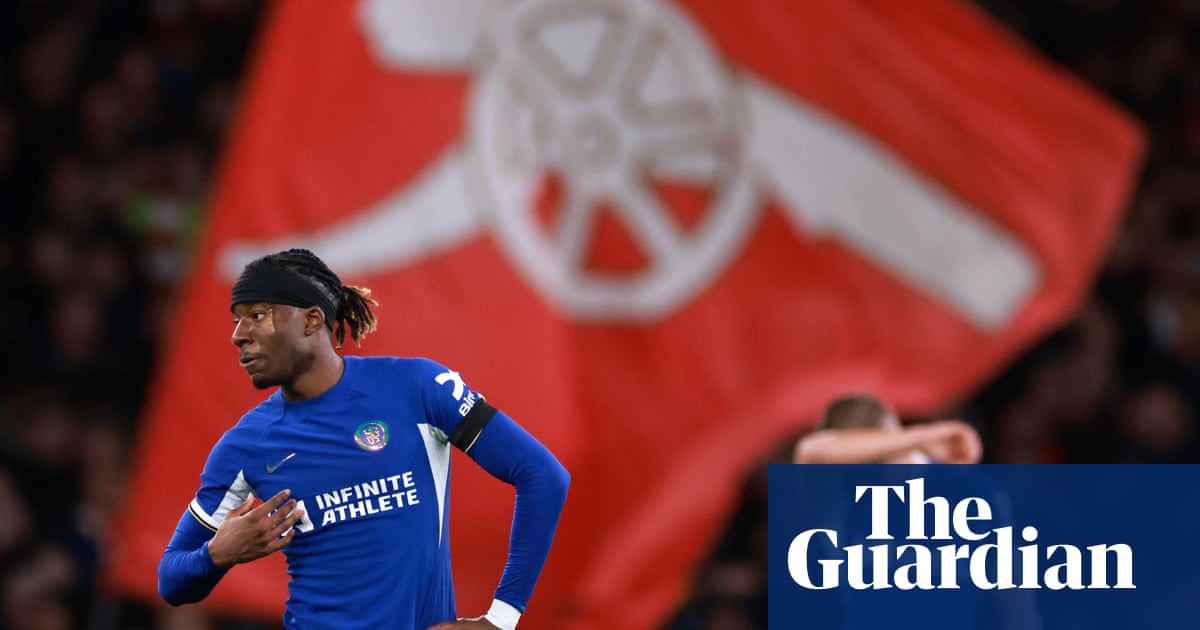
If only Julian Nagelsmann had never become manager of Bayern Munich, the world might have believed he would be a very good manager of Bayern Munich. It was a job to which he had seemed destined since becoming the youngest coach in Bundesliga history in 2016, taking charge of Hoffenheim at the age of 29. He had already led Hoffenheim’s under-19s to the Bundesliga youth title. He seemed preternaturally gifted and in Germany the gifted always end up at Bayern, especially when they come from Bavaria.
Taking over with Hoffenheim seven points adrift, Nagelsmann inspired them to unlikely survival and the following season took them into the Champions League. After a third-place finish in 2017- 18, Nagelsmann’s upward journey continued at RB Leipzig, as he took them to the Champions League semi-finals. A Bundesliga title in his first season at Bayern may have been expected, but his first silverware was no less welcome for that.
And yet, and yet … Leipzig’s 3-0 defeat by Thomas Tuchel’s Paris Saint-Germain in that one-legged Champions League semi-final in 2020 was damaging. They were flat from start to finish, devoid of the aggression shown against Atlético Madrid and Tottenham in the previous rounds.
PSG have habitually been rattled by hard-pressing opponents and their starry but lackadaisical forward line means they can be overwhelmed in midfield. Leipzig, though, were so timorous that the extraordinary trousers sported by Nagelsmann that night came to seem compensatory.
It’s one game. Failures can happen, particularly when a team are playing on a stage they have never previously reached. But it fitted a pattern: Nagelsmann faltering in big games against non- German opposition. It began when Hoffenheim were drawn against Liverpool in a Champions League playoff in 2017‑18.
A potentially awkward tie for Liverpool was won more comfortably than a 6-3 aggregate suggests. Leipzig didn’t put up much of a challenge against them in the last 16 in 2020-21, either. It is true Leipzig were underdogs in all those games, but the issue is less the defeats than the tame manner of them. Then last season Bayern were eliminated by Villarreal in the Champions League quarter‑finals.
Obviously if you focus only on a manager’s defeats he looks bad. And the sample size is small. But this is the nature of modern German football, particularly for a Bayern coach when the title is all but assured. Europe is the only stage where honour can be won and Nagelsmann is yet to do that.
That said, Bayern have won eight out of eight in the Champions League this season, eliminating PSG, but even in the first leg of the last 16 there was a sense of opportunity lost. A manager more in tune with the emotional flow of the game might have seized on PSG’s dismal first half, would have recognised their midfield domination and grasped the moment rather than diligently retaining possession.
As it was, Bayern survived a late wobble after Kylian Mbappé had come on and although they ended up going through comfortably that lack of ruthlessness needlessly offered PSG a route back into the game.
There is something preposterous about this. There is an absurdity to a manager being sacked having lost three of 36 games this season. But that is the reality of modern German football. Bayern’s annual revenues are 83% higher than those of their nearest rivals and in that sense Nagelsmann is just as much a victim of Germany’s financial divisions as Hansa Rostock or Arminia Bielefeld. Winning isn’t enough: there must be domination and there must be panache.
“After the World Cup,” said Bayern’s chief executive, Oliver Kahn, “we have played less successfully and less attractively.”
It’s not just performances that led to Nagelsmann’s dismissal, or even the defeats by Borussia Mönchengladbach and Bayer Leverkusen that led to Bayern surrendering top spot. As doubts mounted, he seemed less and less able to deal with the pressure. His hunt for the “mole” he claimed was leaking dressing-room information, which led to the sacking of Bayern’s popular long-term goalkeeping coach, Toni Tapalovic, came to seem paranoid.
The sporting director, Hasan Salihamidzic, is known to have had a difficult relationship with Nagelsmann, while there were reports of a dressing-room row with Sadio Mané.
And so Nagelsmann, thrust into coaching at the age of 20 by injury, tipped for the top from an early age, has lost his dream job. When Johan Cruyff, having already managed Ajax, was sacked by Barcelona in 1996 he declared time on his managerial career at the age 49; Nagelsmann is 35.
Cruyff remained in Barcelona, writing his newspaper columns, the unofficial conscience of the club. But he had won four league titles – at a time when every championship really mattered for Barcelona – led them to their first European Cup and changed the parameters of how the world believed football could be played. Nagelsmann, for all his promise, has no such achievements. He will surely coach again.
But where, and with what enthusiasm? He has been linked with Real Madrid and Tottenham. But how would Nagelsmann who, quite aside from his occasionally extravagant fashion choices, has turned up to Bayern training on a skateboard and a Harley-Davidson motorcycle as though suffering a perpetual and premature midlife crisis, fit within Madrid’s culture of señorio? How would club grandees react to his loud tracksuits and brash checks?
Equally, were he to turn up at Tottenham it would, compared with Bayern and Madrid, feel like a step down. Spurs have suffered enough with managers who have treated the job as though they were doing the club a favour. What they need is the equivalent of Mauricio Pochettino in 2014, a hungry manager on the way up, not one, no matter how young, fighting for relevance, perhaps eyeing ultimately a cathartic return to Bayern.
That is Nagelsmann’s great problem. At an age when many are still playing, he has reached a crisis point in his managerial career. It may be his best years are already behind him. This is often the tragedy of wunderkinder: gilded youth yields often to leaden middle age.












